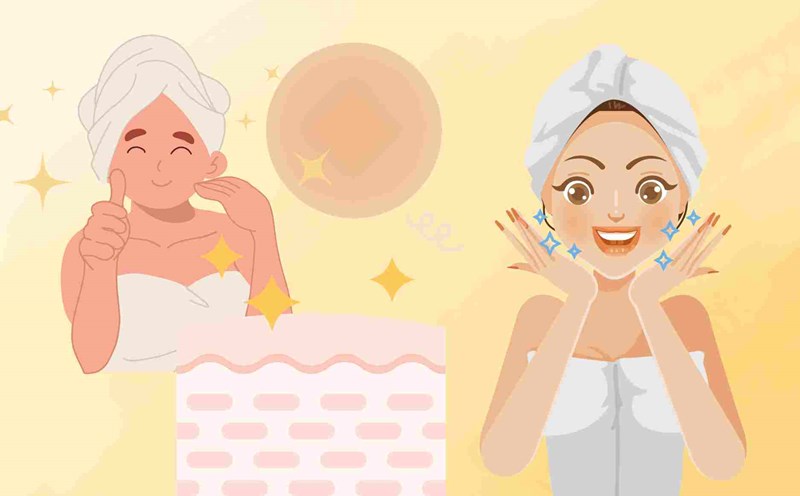Dr Sheena Kapoor, a dermatologist at Kokilaben Dhirubhai Ambani Hospital in Indore (India), shared the dangers of forming acne and how to treat acne safely.
Location where you should not have acne on your face
Not all pimples are the same, and some pimples are more likely to cause more serious complications when shaped. According to Dr. Kapoor, the nose and mouth area, known as the "dangerous triangle" on the face, is where acne should be avoided.
This is an area with many blood vessels connecting directly to the brain, so any infection from acne here can lead to dangerous complications, including Cave Tubile thrombosis (CST).
Caver committed thrombosis is a condition in which a blood clot forms in a large vein in the brain stem, which can lead to serious problems due to impaired blood flow. Although this is rare, complications caused by acne in this area can be life-threatening.
Risks of acne
In addition, cystical acne or acne that is not properly molded can also leave a permanent scar. Shaping acne not only pushes bacteria deep into the skin but also increases inflammation levels, making acne worse. Therefore, Dr. Kapoor recommends not to arbitrarily form acne at home, especially in areas with severe acne or acne.
How to handle acne safely
Instead of shaping acne, experts recommend that you follow the right treatment to minimize skin damage, including:
Control acne shaping habits: Arbitrarily touching or shaping acne can damage the skin. You should be patient and avoid doing that.
Treatment as prescribed by a dermatologist: Consult a doctor for advice on treatment products suitable for your skin type.
Use gentle skin care products: Products containing salicylic acid or benzoyl peroxide can help cleanse the skin, but need to be used under the supervision of a doctor.
Find professional services: For blackheads or whiteheads, choosing a professional acne care service at reputable medical facilities is a safe way to minimize risks.
Although shaping acne can provide a temporary feeling of comfort, it is not safe. Dr. Kapoor emphasizes that curbing this habit and seeking professional treatment is the best way to protect your skin and avoid unnecessary damage.
advances in the dermatology industry have helped minimize damage caused by acne, but prevention is still the optimal measure.
Remember, beautiful and healthy skin needs proper care, patience and advice from scientific methods, instead of temporary solutions but with potential risks.











